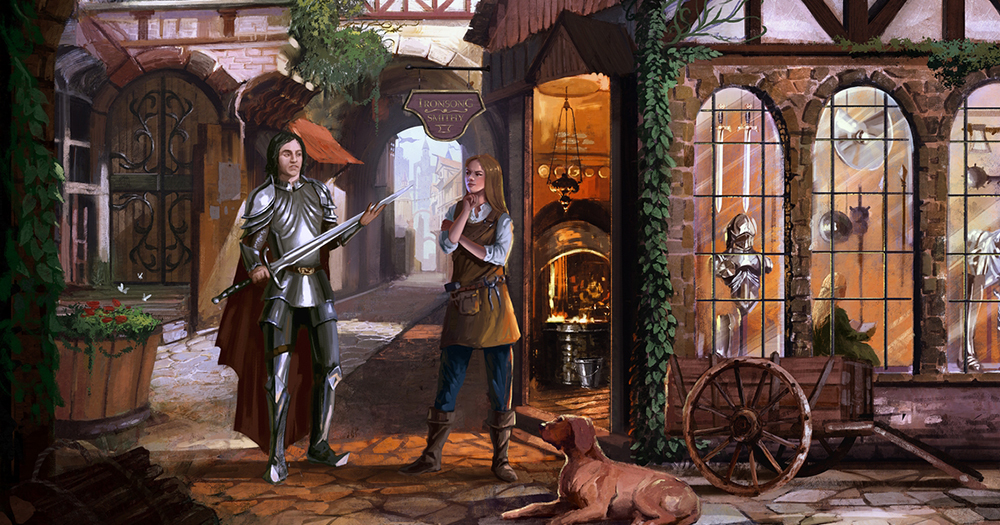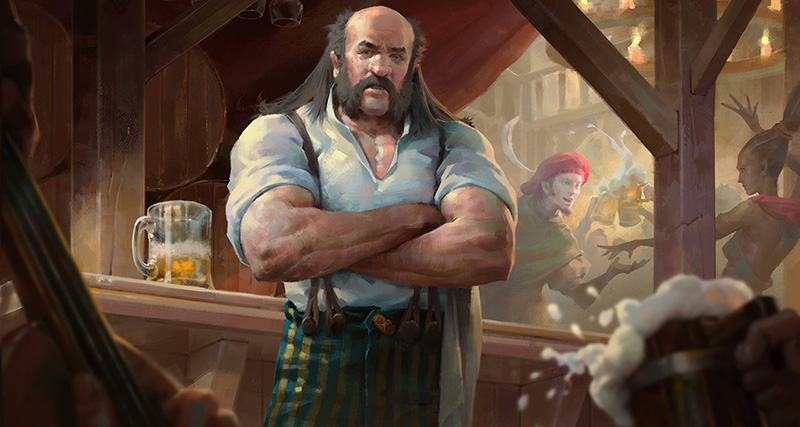
Preparing for Your First Prerelease
It’s almost pre-release time! While pre-release can be a fun and exciting time for players, it’s important to make it a successful event that encourages players to engage in the community and leave it feeling happy. This article will cover a few things you can do to help your pre-release a more exciting, welcoming, and – most importantly – fun time for all of your attendees.
Pre-Prerelease Prep
The first step to judging a pre-release is to find a store to judge at! Pre-releases are a great way for less experienced judges to get acquainted with running medium-sized events in a more casual setting. If you’re a new or out-of-practice judge, I’d highly recommend reaching out to stores in your area to see if they need one – even if they already have one, there’s a chance they may appreciate the extra help.
Since Flesh and Blood is still considered a newer game, it’s important for judges to act as ambassadors to the game; and part of that is ensuring that a store has everything they need to ensure a successful pre-release. Stores that have been selected for pre-release might not necessarily have an active Flesh and Blood scene; tournament organizers may also be unfamiliar with Flesh and Blood events and will appreciate someone more knowledgeable to ensure their event is a success. Every community and store may run their events differently, but common questions to discuss with tournament organizers are:
- “How many players are we expecting, and do we have enough table space for those players?”
- “What will the tournament structure be like? How many rounds, and what are the start and estimated end times? Do we have a plan for food breaks for employees, judges, or players?”
- “Do we have enough prizing and/or sealed product for the players?”
- “How am I being compensated?”
The general goal with these questions is to ensure that both the tournament organizer and you (as well as other judges) have an accurate idea of where everything is in the venue, what the day is going to look like, and have enough information to give to players who ask similar questions to you. The last question is probably the most important one. Make sure to talk over compensation prior to the event with the store or tournament organizer whenever you judge an event, so that expectations can be set and your work can be properly compensated! For pre-releases, it’s not uncommon to have compensation be something like a single booster box of the set, though compensation is always highly dependent on the store and your community.
Of course, these aren’t the only responsibilities you and the tournament organizer will have when preparing for the event; marketing the event, ensuring the availability of tournament supplies, and division of roles when multiple judges or employees are needed to ensure the smooth operation of the event, are all key to coordinate with your tournament organizer, but these responsibilities generally fall on the tournament organizer’s side. It never hurts to check!

Opening Announcements
One of the more important responsibilities as head judge (if you are the only judge, you are head judge) is to begin the event. If you need to brush up on the pre-release tournament structure, I highly recommend reading LSS’s official Outsiders pre-release guidelines and the official tournament policy guidelines. While stores may deviate from these guidelines for a variety of reasons, these deviations should be with good reason and be mentioned to players during the opening announcements.
Once most players are seated in some fashion – either by you assigning seats to everyone or by simply asking players to grab an empty seat next to them – you can begin your opening announcements. They should cover:
- Your introduction(s). Informing players that you are, in fact, the head judge, as well as introducing your name, pronouns, and other information that you feel is relevant to the event.
- Store-related information. Where the register is, where the bathrooms are, any food/drink policies, etc. This may be handled by the TO if they wish.
- Introductions to the Event. With it, it’s important to establish what the goals of the event are – and that should be facilitating a friendly and fun casual environment for everyone to play in!
- Tournament Structure. The number of players, number of rounds, prizing, the format (6-pack sealed), time limits for deck construction and rounds, and additional store-specific gimmicks like mini-games are important to include. Deviations from the normal should also be noted.
- Gameplay-Related Reminders. These may be related to specific rules interactions you feel will be important to mention to your community, or addressing deck construction-specific questions such as where to acquire additional tokens. Most importantly, explain to players how to call a judge over (“Raise your hand and yell ‘JUDGE!’ if you have any sort of question.”).
- “Let’s begin!” Opening announcements tend to have diminishing returns on player attention the longer they go; players begin tuning out if your announcements go on too long, and everyone wants to start cracking packs and building decks. Once you’ve established the ground rules of the event, begin distributing the product and allowing players to start doing what they came here for. If there’s anything you may have missed, you can always bring it up later during the event as necessary.

Facilitate Fun
Since pre-releases are intended as casual events, don’t be afraid to extend time limits for deck construction or assist players in deck construction as necessary. Pre-release is a time for newer or more casual players to play in an organized event, so normal guidelines can be relaxed at your discretion to ensure a fair and fun event.
Once players have mostly finished deck construction, you can begin round 1. Like most tournaments, judges will need to ensure results are being entered, seatings are being posted, and players approaching the time limit are adequately reminded of their remaining time throughout the round. Remember, your goal is to have a smooth and minimally interruptive event. When approaching situations that require judge intervention, it’s important to keep these goals in mind.
Of course, there is a limit to what judges should allow. Use your best judgment to determine what can and should be allowed at the event. For example, if a player looks uncomfortable with spectators watching their match, judges should ask spectators to stop watching out of respect for the other player.
In very rare occasions, you may need to remove a disruptive player or introduce additional rules (such as registering decks if you have reason to believe players may be cheating) to ensure a smooth event. In these cases, it is important to converse with your tournament organizer for their input before making these decisions, as they will directly affect the event itself.
Throughout the Day
If you’re not used to running large events, they can be exhausting. Remember to pace yourself and find opportunities to rest your feet, or take a break if needed. Even if you’re the only judge on staff, scheduling a time for your break during a time where you’re not needed as urgently – usually in the middle of a round – is important. Ask a store employee to help keep an eye on things while you relax a bit, or just find a quiet spot where you can sit down and relax while still keeping an eye on the event from afar.
As the last round begins, it’s important to remind players about usual collusion and bribery rules, as well as get ready to help hand out prizes if necessary. Players will finish up their last matches throughout the round, and ensuring a timely payout for individual tables can help prevent a hectic handout at the end of the round.
Once the players have received their prizes and begun making their way out of the store, be sure to touch base with the tournament organizer or a store representative for any additional assistance you can provide. Whether it is cleaning up the room or giving the store owner a rundown of the events of the day, it’s important to debrief to get feedback on your own performance and build a rapport with the store. Hopefully, the experience will be a positive one – leading to more opportunities to work with the store and further your own growth as a judge!
Yichin Liu is a Level 2 Flesh & Blood Judge from the US, and a member of the blog’s content team. The opinions expressed in the above article are his own and do not necessarily reflect the views of Legend Story Studios or the Judge Program.
